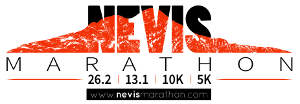
Master Your Marathon: Essential Tips For Every Runner

Training for a marathon, especially in tropical conditions like those on Nevis, requires careful preparation and strategy. Here are tailored training tips for varying distances, designed for both beginners and experienced runners:
General Training Tips for All Runners
– Start Early: Begin training at least 12-16 weeks before the marathon to build endurance and strength gradually.
– Hydration: Increase fluid intake during training to prevent dehydration, especially important in tropical climates.
– Diet: Focus on a balanced diet rich in carbohydrates, proteins, and fats. Carbohydrates are particularly important for energy during long runs.
– Cross-Training: Incorporate activities like swimming, cycling, or yoga to improve cardiovascular fitness and reduce the risk of injury.
– Rest Days: Incorporate rest days into your training schedule to allow your body to recover and prevent overtraining.
Acclimatizing to Tropical Conditions
– Train in Similar Conditions: If possible, train during the warmer parts of the day to acclimate your body to running in heat and humidity.
– Wear Appropriate Clothing: Opt for lightweight, breathable, and moisture-wicking running apparel to help keep cool and dry.
– Sun Protection: Use sunscreen, wear a hat and sunglasses to protect against sun exposure during long training sessions and on race day.
– Adjust Pace: Start at a slower pace than usual to account for the increased effort required in hot and humid conditions.
Tips for Beginners (5K and 10K)
– Build Gradually: Start with shorter distances and gradually increase your mileage each week.
– Interval Training: Incorporate intervals of walking and jogging into your training to build stamina without overexertion.
– Consistency Over Speed: Focus on maintaining a consistent pace rather than speed, which is crucial for building endurance.
– Pre-race Preparation: Simulate race day conditions by running at the same time of day as the event.
Tips for Intermediate Runners (Half Marathon)
– Long Runs: Incorporate a weekly long run into your training to get your body used to prolonged periods of running.
– Pace Training: Practice running at your target race pace to develop muscle memory for the half-marathon.
– Strength Training: Include exercises that strengthen your legs, core, and upper body to improve overall running efficiency.
Tips for Experienced Runners (Full Marathon)
– Volume and Intensity: Increase both the volume and intensity of training. Incorporate tempo runs, long-distance runs, and speed work.
– Back-to-Back Runs: Schedule back-to-back runs—running long distances on consecutive days to simulate race fatigue.
– Tapering: Reduce your mileage gradually in the last three weeks before the marathon to ensure your body is well-rested and at peak performance for race day.
Mental Preparation
– Visualize: Use visualization techniques to mentally prepare for the race. Imagine yourself running on the course and crossing the finish line.
– Strategy: Develop a race strategy, including where you will hydrate and take in nutrition during the race, and stick to it.
By following these training tips, you can better prepare for the unique challenges of running in a tropical climate and enjoy a successful race day at the Nevis Marathon & Running Festival.
Nevis Marathon & Running Festival 2025
Next Race: September 6th
